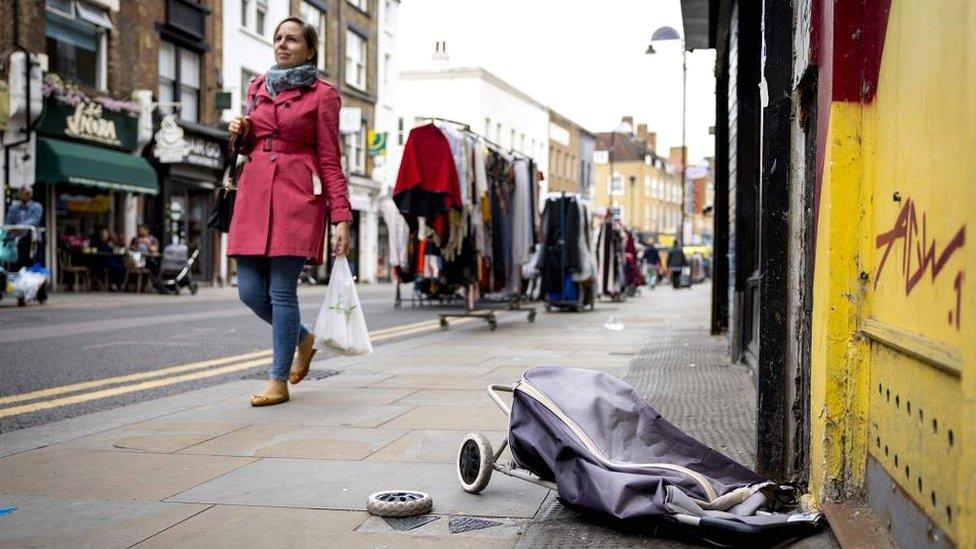Autumn Statement: Welsh businesses call for support
- Published
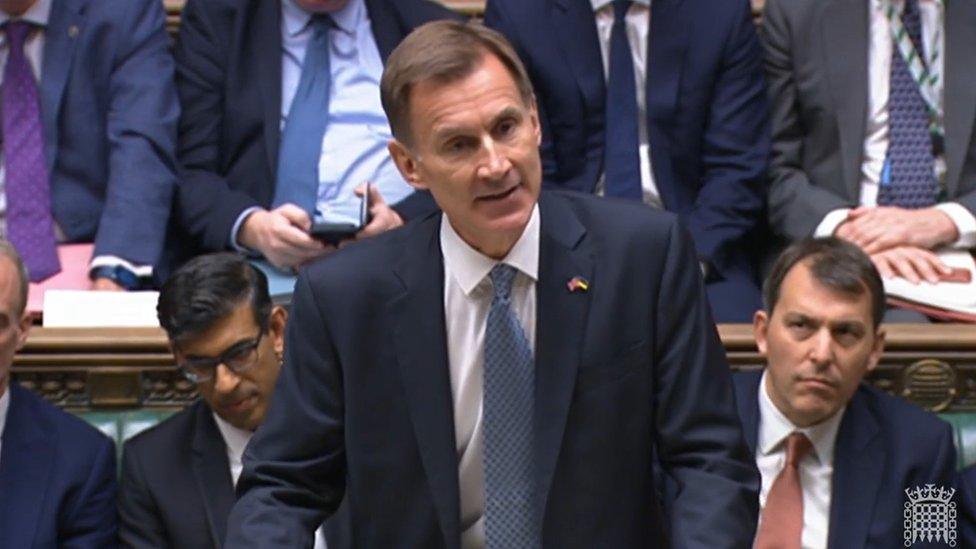
Chancellor Jeremy Hunt delivered the Autumn Statement in the House of Commons on Thursday morning
Business owners are calling on the UK government to increase support to cope with rising prices.
Reacting to Chancellor Jeremy Hunt's Autumn Statement, Swansea Valley businesses said they were trying to absorb costs but it was getting harder.
Budget changes included increased taxes, as well as raising benefits in line with inflation.
The Welsh government can expect £1.2 billion extra in funding over the next two years.
The chancellor acknowledged that the UK is in recession.
First Minister Mark Drakeford said the statement has "heaped further pressure on millions of people".
He said: "We will continue to do everything we can to help people through this difficult period - but all of us will pay for the UK Government's mistakes for years to come."
Paula Fornelos has been running a café in Pontardawe in the Swansea Valley for almost 15 years.
She said she was "really struggling" to deal with rising costs of ingredients and utilities, but she was reluctant to pass it on to her customers.
"If they can do more with our electric, gas and cut down our water bills - maybe these little things would help us to get on with running the business.
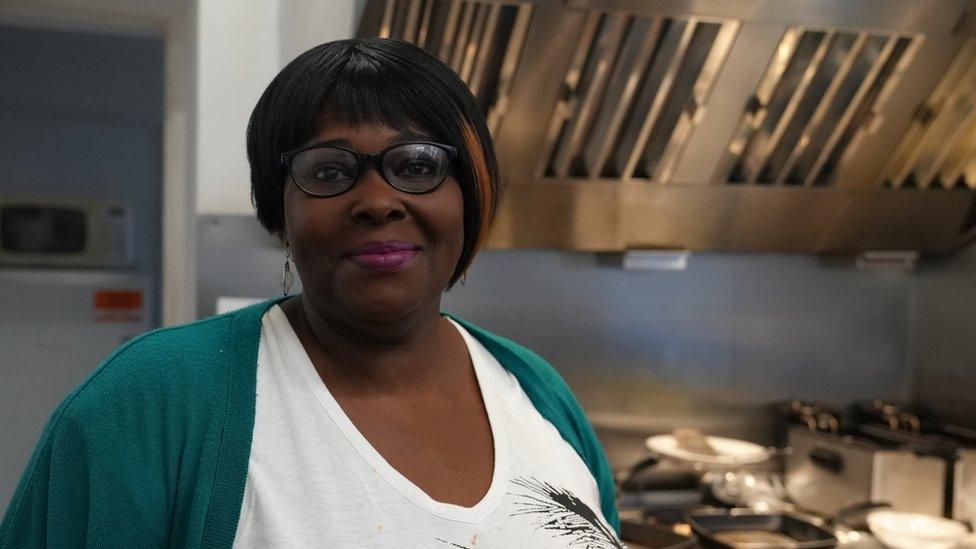
Café owner Paula Fornelos says she is "really struggling" with rising costs
She said she wanted politicians to "do something now" to help business owners.
Meanwhile, Llew Gibson runs his own gym, PB Fitness, in the same town.
He said running the business had been "a bumpy ride" as he opened during the worst of the Covid pandemic, but membership numbers had increased steadily.
"Over the last couple of months we have seen a big hit, in terms of the energy bills going up," he said.
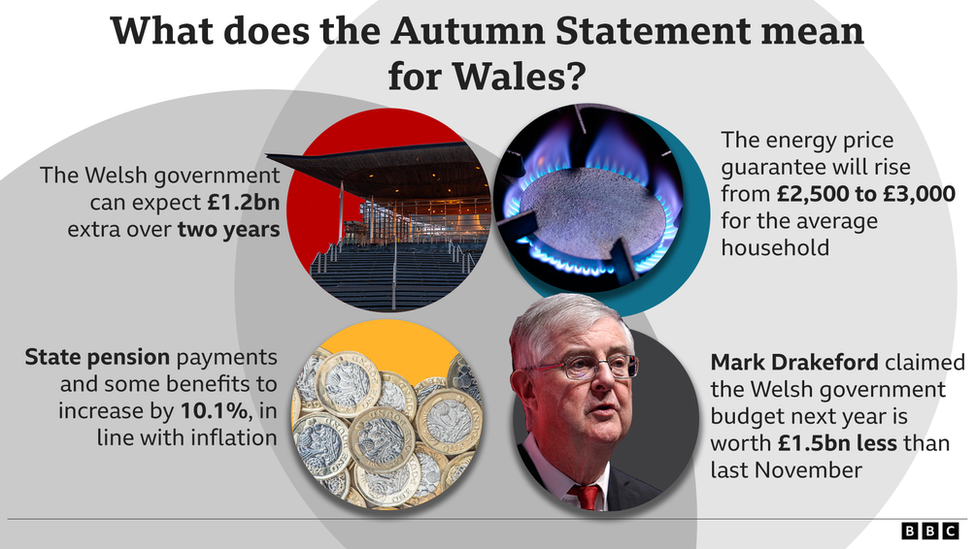
"We are doing our best at the moment to absorb the costs ourselves simply because we are relying on customers.
"And if we were to hike our prices up to just take care of the costs, then they would be taking the hit and they would have to sacrifice their own memberships, they wouldn't be able to afford to come here."
Forecasts are predicting the economy will shrink by 1.4% next year, and that things will get worse before they improve.
Hunt told the House of Commons that his three priorities were "stability, growth and public services", as well as protecting the most vulnerable.

Llew Gibson says that if customers "take the hit" of rising costs, they'll stop being able to afford to go to his gym at all
He said he hoped this budget would reassure markets that the government would get debt down, following the turbulence caused by Kwasi Kwarteng's "mini-budget" .
But some impacts of that budget - such as interest rates going up and hitting people's mortgages and debt repayments - are still being felt today.
Speaking as Jeremy Hunt prepared to unveil tens of billions of pounds of spending cuts and tax rises, Mr Drakeford said he was worried Wales would be denied vital money for public services that people relied on to "get them through tough times".
Earlier this week, the Office for National Statistics published the latest inflation figures for October.
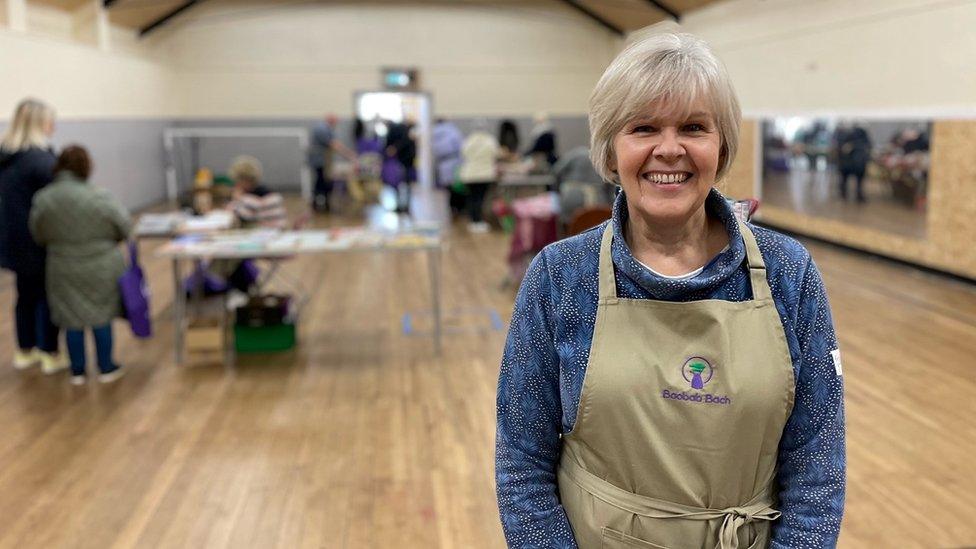
Alison Westwood says the need for "food and warmth" for some in Bridgend county is growing
They show that prices rose by 11.1% in the year to October driven by rising food and energy prices.
Higher energy and food bills have caused households and companies to cut back on spending, which has led to expectations the UK will enter a recession - when the economy shrinks instead of grows - at the end of the year.
'Christmas in darkness'
A community pantry in Nantymoel, Bridgend county, where members can get a weekly bag of food for £5, told BBC Radio Wales Drive demand had doubled over the last year.
"The cost of living crisis is becoming a bit of a hard hitting factor in people's lives," said a Baobab Bach director, Alison Westwood.
"We've noticed a massive increase in numbers of people coming through in recent months," she said. "We're also opening as a warm space so people can come and have a cup of tea or coffee for free and use the building."
Some clients are living in desperate circumstances, she added.
"Yesterday a lady said that she has four children and she's not putting the heating on.... she's trying to make sure she can afford enough heat and light for Christmas so the children don't have Christmas in darkness."
Another project in Nantymoel, which grows food for the pantry, is about to start a pick-your-own for people in the village.
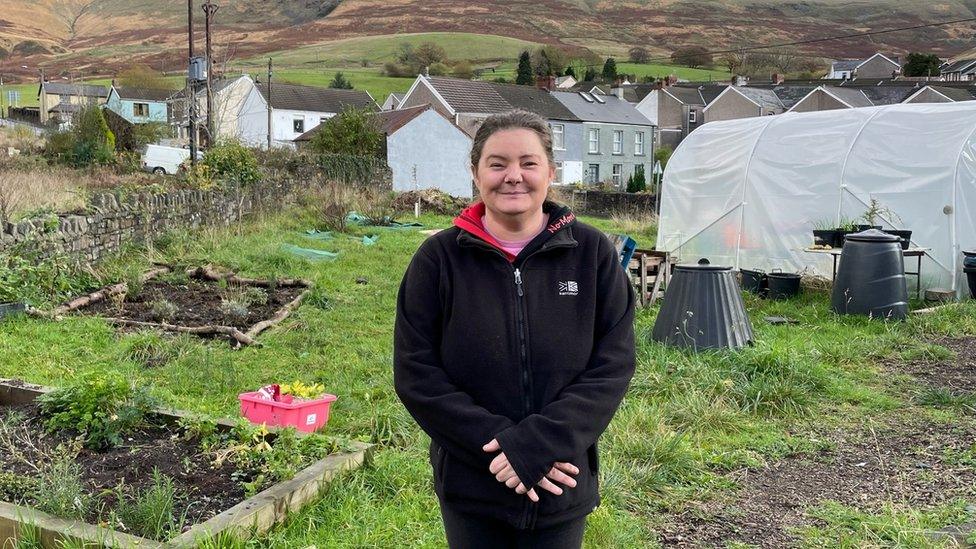
Helen Davies says the Nantymoel ‘food forest’ aims to provide a "constant supply of food" for the village
"I grow as much food as I possibly can and give it away free to the community," said Helen Davies, who runs the Nantymoel 'food forest'.
"Anybody can also come in and pick what they want," she said, explaining how they replant after each harvest "so it'll always be a constant supply of food".
"We're going to invite schools, Alzheimer's Association, Carers Association and Autistic Association," she said, "because kids tend to love this type of thing. Once they have their hand in the dirt they tend to want to stay there forever."

Key announcements from the Autumn Statement
The threshold for top rate of tax will be brought down from £150,000 to £125,000
The energy industry will be hit with an expanded windfall tax of 35% up from 25%
Income tax personal allowance threshold will be frozen until 2028. This means millions of people will pay more tax
Electric vehicles will no longer be exempt from Vehicle Excise Duty from April 2025 to make the motoring tax system "fairer"
More than 600,000 more people on universal credit will be asked to meet with work coach
£280m will be invested to help the Department of Work and Pensions to crack down on benefit fraud and errors
The Welsh government can expect £1.2bn extra over two years
Help for energy bills will be extended, but it will be less generous - it means the typical household annual bill will rise by around £3,000 from April
There will be targeted support with the cost of living for those on low incomes, disability benefits and pensioners.
The National Living Wage will be increased from £9.50 an hour for over-23s to £10.42 from April
Means-tested benefits, including Universal Credit, as well as pensions, will also rise in line with September's inflation figure of 10.1% from next April
Rent increases in the social rented sector will be capped at 7% in the next financial year

Head of the Association of Chartered Certified Accountants in Wales, Lloyd Powell, said the announcement needed to provide "stability" and had achieved this "to some extent".
He said: "While more of us being asked to pay more tax was not a surprise, it's nonetheless disappointing for both consumers and businesses battling headwinds of rising costs.
"Further, real-terms cuts to public spending will undoubtedly have knock-on implications for public services and the economy."
Shadow Secretary of State for Wales Jo Stevens added: "The mess we are in is not just a result of 12 weeks of Conservative chaos but 12 years of Conservative economic failure.
"And all they offer today is more of the same - with working people paying the price for their failure."

WHAT'S KILLING OUR RIVERS?: Wyre Davies investigates what and who is to blame

Related topics
- Published17 November 2022
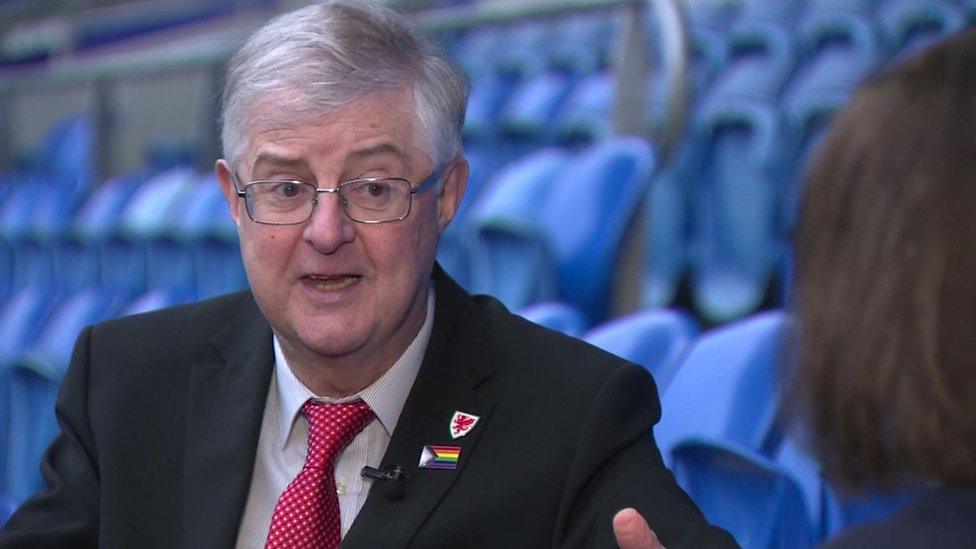
- Published17 November 2022
